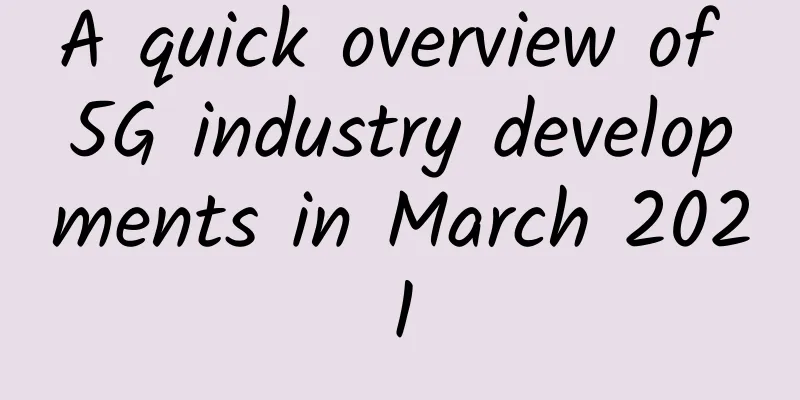Poor performance! British media exclaimed that Europe's 5G competition is rapidly falling behind the United States and Asia

|
The Financial Times website recently reported that despite increased investment by Europe's largest players, Europe is rapidly falling behind the United States and Asia in the race to build 5G networks.
According to the latest research results, the number of Europeans able to connect to 5G networks was 24% at the end of September, compared with 13% at the end of 2019. However, that compares to 76% of Americans who are able to connect to 5G networks, and even higher in some parts of Asia, such as South Korea, where it is 93%, according to a report by telecoms industry body ETNO and Mason Research. The report believes that Europe's poor performance in 5G construction will exacerbate concerns about the economic impact of slower network upgrades than other regions. Most governments believe that 5G networks are critical national infrastructure and are key to modernizing factory floors, transportation systems and healthcare. The European Commission has repeatedly stated over the past decade that continental Europe will play a leading role in the 5G era, and has even launched several "action plans" to stimulate investment, but progress has stagnated. Some companies, including Deutsche Telekom, Britain's Vodafone, BT, Telefonica and Telecom Italia, have launched 5G networks and upgraded more fixed networks to fiber-optic cables to support the 5G rollout. The ETNO report showed that the pace of investment in the telecoms industry is accelerating, with nearly 52 billion euros spent in 2019, compared with 48.6 billion euros in 2018. However, Europe's per capita investment in new networks is still lower than other regions, at €94.8, compared with €147.9 in the United States and €233 in Japan. The international telecoms industry has long argued that heavy-handed and inconsistent regulation has hampered development in a fragmented European market, resulting in lower returns on investment and preventing the billions of euros needed to upgrade networks to 5G. “European (telecoms companies) are investing more than in the past, but this is not enough to close the gap,” said Lise Faure, director general of ETNO. “We need strong policy action to enable large-scale rollout and use of networks.” European companies spend a larger proportion of their revenue on network upgrades than other regions, the report said. But the region's average monthly mobile phone bill is less than 15 euros, compared with 23.7 euros in South Korea, 28.1 euros in Japan and 36.9 euros in the United States, which has had an adverse impact on investment, the report said. 5G has yet to become an essential consumer technology, but it is seen as a non-economic driver for a wide range of industries. Europe’s leading industrialists warn that a failure to coordinate the rollout across the region, desperate to close a growing gap with the United States and Asia, could make supply chains uncompetitive and lead to a drop in investment. Freeing up spectrum - the frequencies used to transmit wireless data - is key to the process. Only one country, Finland, has auctioned off all the spectrum necessary for 5G, while 12 countries, including Belgium, Poland and Portugal, have not completed any auctions at all. So far, €21.6 billion has been raised in 5G auctions in Europe, but the staggered strategies adopted by different countries contrast with markets such as the United States, where regulators have made selling large swaths of spectrum a priority. "The EU has moved towards a policy approach that supports investment, but this cannot be quickly translated into concrete help at the national level," Faure said. |
>>: How difficult is it for a woman to work in communications?
Recommend
Sub-band full-duplex, a compromise for the 5G dream?
Hello everyone, I am Mayfly. In this issue, let’...
SmartHost: AMD Ryzen series 35% off, starting at $2.57/month, Los Angeles/New Jersey/Las Vegas data centers
SmartHost has posted a message on its website say...
RAKsmart: San Jose/Los Angeles E3 server flash sale starting from $30/month, cluster server starting from $142/month, US/Hong Kong/Korea/Japan data centers
RAKsmart is a foreign hosting company founded by ...
A two-way communication without IP confirmation via Udp
Preface UDP is an unreliable communication, but i...
Operators remove many 4G packages to make way for 5G, user experience may be affected
Recently, China Mobile's online business hall...
Talking about the "security gate" of Facebook and Google: the "cheese" and "traps" of SD-WAN
On September 28, hackers used Facebook's secu...
How 5G will change your LAN security
The Local Area Network (LAN) as we know it today ...
Acceleration Cloud: Deyang High-Defense Cloud Server 39 yuan/month-dual core/2G memory/60G hard disk/5M bandwidth/100G defense
Acceleration Cloud is a website under Chengdu Xia...
CloudCone: $17/year-dual-core/1GB/55GB/2TB@1Gbps/Los Angeles data center
Here is some information about CloudCone's re...
Don’t know how to access the router system backend? Learn it in one step!
Wireless routers are essential network devices fo...
The content road for operators may not be smooth
Since 2018, the gap between traffic volume and re...
Emoji.voto, a sample application for Linkerd service mesh
[[412321]] A microservice application that allows...
The hidden threat of smart home privacy leakage comes from the router
In our daily life, we can use smartphones to cont...
What is the significance of “number portability”?
For domestic users, "number portability"...
ZJI: New Hong Kong (Ali/Kwaiwan) E3 high-frequency servers available, 25% off
ZJI is the original well-known WordPress host com...









